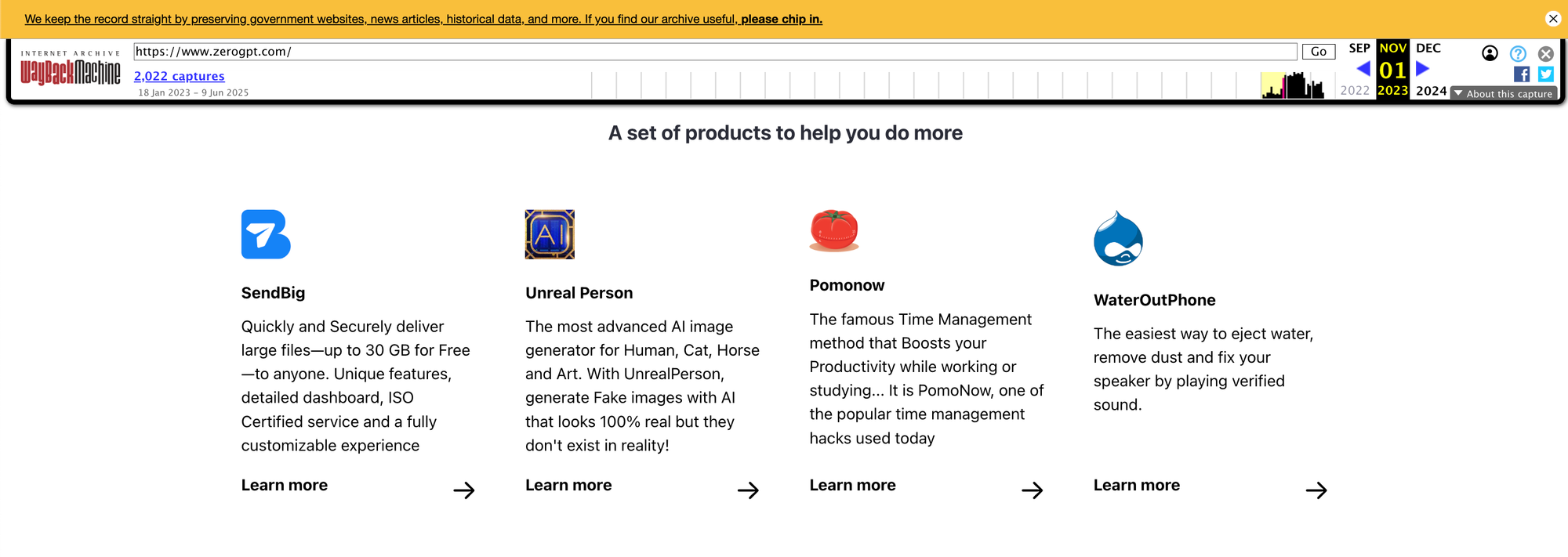GPTZero vs ZeroGPT — What You Need to Know
When ChatGPT exploded into the world in late 2022, the world scrambled to keep up with the subsequent flood of AI-generated content. GPTZero launched just weeks later, on January 1st, 2023, built from the longtime research at Princeton’s NLP lab to give educators and professionals a way to detect AI-written text.
After GPTZero’s viral momentum, a copycat site, ZeroGPT, popped up on January 18th, 2023, capitalizing on brand confusion that even major media outlets, including Yahoo News and SCMP had by accidentally swapping the GPTZero name.
GPTZero started with the goal to preserve space for authentic human writing on the media, while immediately responsible AI adoption in schools.
Meanwhile, when ZeroGPT started it immediately put on their website the tagline “Millions of users trust ZeroGPT's detector.” This was obviously false as their service had just launched, and deliberately misled consumers through confusing them with the GPTZero brand. At that point, GPTZero publicly shared that it has already reached 1 million users after receiving global coverage from CNN Anderson Cooper interview, the BBC, and the New York Times.

ZeroGPT’s motivations are not aimed at supporting education, nor expanding the boundaries of research in responsible AI adoption. In the past, their team has frequently copied academic work without fair attributions, including their Unreal Person AI facial generation 'service' which is a copy of open-sourced StyleGan image models violating a public MIT license against commercial use.
Behind the scenes, ZeroGPT is run by an unaccountable company that copies products for immediate advertisement revenue and profit. In addition to ZeroGPT, the conglomerate of websites has also spun out other unverified technologies like WaterOutPhone, “the easiest way to remove dust and fix your speaker by playing verified sound” and Let’s Talk GPT, “Premium and Reliable ChatGPT Messaging. Let's Talk GPT, was later removed from twitter due to its spammy practices.

In the past year, ZeroGPT has attempted to legitimize its service through upgrading its software platform and optimizing SEO (Google search rankings). Despite these efforts, it is important to recognize that the initial ZeroGPT brand was built on deceptive tactics.
Even today, serious considerations remain about ZeroGPT, including:
Unverifiable AI detection accuracies:
GPTZero accuracies are benchmarked independently with university labs at Penn State and consistently tested across tests the results of the product across different writing types and languages. ZeroGPT conducts no academic benchmarking, and offers no independent validation.
Unaccountable customer support and team:
Short of the fact that the business was registered in Lebanon, there is zero transparency behind who operates ZeroGPT. There is no accountability behind product, payment, and customer support failings for their users. In contrast, GPTZero was ranked as G2’s #1 AI software in 2025 based on customer satisfaction and ratings.
Opaque data storage and privacy practices:
GPTZero is SOC 2 certified for enterprise usage and FERPA-compliant for student data safety. ZeroGPT offers no transparency into their data storage or privacy and makes it unsafe to store academic or personal information.
In conclusion, GPTZero users should not trust ZeroGPT as a brand or as an AI detector. They are not associated with GPTZero, and offer no transparency or accountability behind who is operating their website. They are an attempt to misconstrue consumers and confuse product offerings for profit.
